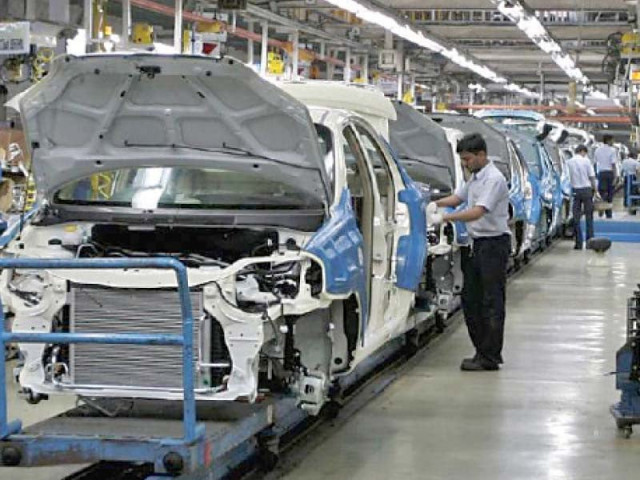PAAPAM decries proposed sales tax hike
Says increases from 18% to 25% could escalate car prices to over Rs4 million

The Pakistan Association of Automotive Parts and Accessories Manufacturers (PAAPAM) has sounded the alarm over the government’s proposed increase in sales tax on automobiles from 18% to 25%, warning that such a move could drastically escalate car prices to as high as Rs4 million or above.
Speaking in unison, PAAPAM’s leadership, including Chairman Abdul Rahman Aizaz, SCV Mumsahd Ali, and VC Taufique Sherwani, voiced grave concerns, citing that previous tax hikes, currency devaluation, and other economic factors have already led to a substantial decline in automobile sales, plummeting to just 30% of 2021-22 levels. This downturn has not only strained the automotive manufacturing sector and curtailed job opportunities but has also resulted in diminished tax revenue from the industry.
Highlighting the prevailing challenges such as surging energy costs, a staggering currency devaluation of over 160% within six years, exorbitantly high financing rates, and a tax burden exceeding 40% on each vehicle sold, PAAPAM officials underscored that current sales have dwindled to a mere 100,000 cars and SUVs, significantly below the installed capacity of 500,000 vehicles.
They noted that the automotive sector has been on a downward trajectory for the past five years, and any further price hikes, particularly due to increased taxes, would only exacerbate the decline in sales. Highlighting the elasticity of automobile demand, they warned that higher prices resulting from a GST hike would likely dampen consumer sentiment and erode investor confidence in Pakistan’s market, compounding the existing challenges of hyperinflation and economic slowdown.
Read Auto industry seeks growth via diversification
Expressing surprise over the government’s decision to leave taxes unchanged on imported used cars, PAAPAM leaders argued that this policy discrepancy provides negative protection to locally manufactured vehicles, allowing used cars to dominate the market at the expense of domestic production, highlighting the detrimental impact of this trend on foreign exchange reserves and government revenue.
They reiterated that the Economic Coordination Committee’s decision to increase the GST to 25% on locally produced vehicles, of 1,400cc and above, will result both in a drop in volumes as well as revenues.
The association urged authorities to refrain from burdening the local automotive industry with further tax increases, explaining that raising the GST to 25% for small-sized sedans would render them unaffordable for the middle class and result in reduced tax collection due to decreased sales. They called for constructive dialogue with the government before implementing any additional taxes on automobiles, noting that a similar proposal had been rejected during previous discussions with industry stakeholders.
Meanwhile, data from the Pakistan Automobile Manufacturing Association (PAMA) revealed a 12.33% decrease in the sale of motorbikes and three-wheelers during the first seven months of the current fiscal year (2023-24) compared to the same period last year. While certain brands experienced growth, overall sales declined, signalling ongoing challenges in the automotive market.
Published in The Express Tribune, February 22nd, 2024.
Like Business on Facebook, follow @TribuneBiz on Twitter to stay informed and join in the conversation.



















COMMENTS
Comments are moderated and generally will be posted if they are on-topic and not abusive.
For more information, please see our Comments FAQ